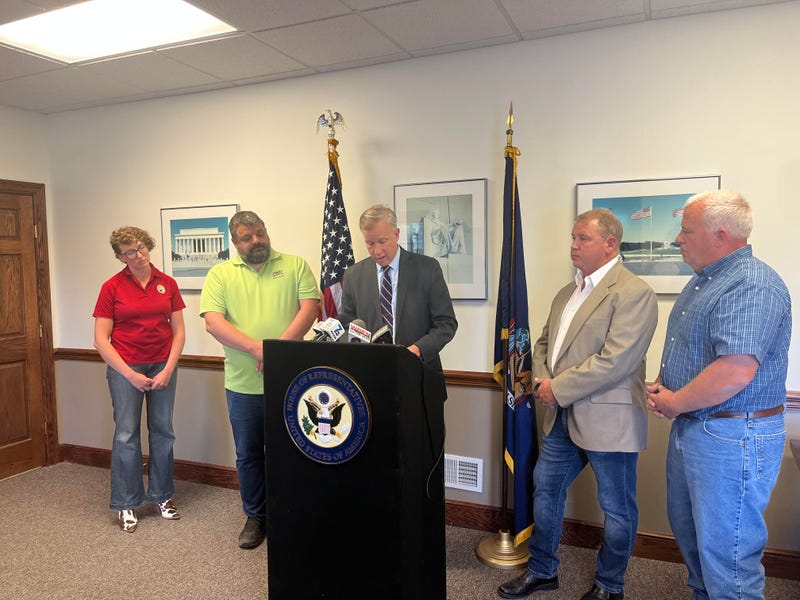
New York State (WBEN) - On Tuesday, September 6th, New York's Farm Laborer Wage Board recommended to the New York State Labor Department to lower the overtime threshold from 60 hours to 40 hours a week over the course of ten years.
Congressman Chris Jacobs and members of the New York Farm Bureau spoke out against this recommendation Thursday morning, saying that this will greatly damage the farming industries' "razor-thin" margins and limit the amount of time workers can spend in the field, causing a majority of the farm's migrant workforce to look elsewhere for work.

"When a crop is ready for for harvest, farmers can not wait for the next day. They cannot send their employees home and call them back the next week. I've come to learn this in my time serving here, a crop can be premature to pick on a Friday, ready to pick on a Tuesday and if it's not picked by that following Thursday, it will be dying on the vine. These are the realities that impact no other industry. That is why the federal government and previous to this action, the state's policy treated agriculture as the unique industry it did and made policy accommodations for the industry to thrive," said Congressman Jacobs.
"Limiting the workforce further and raising the costs incurred by farmers is a disastrous idea. This creates a two fold problem. First farmers are struggling for workers already, as we know everyone is struggling for workers but farmers even more so can not afford to be short a man or pay even higher costs to keep the same workforce employed at the lower threshold. Second, workers, many of which are migrant workers, legal migrant workers want to work so they come to this country to be farm workers and maximize the money that they can make while they're here. If they cannot make the hours and get paid for the hours that they maximize, they're not here to take weekends off. They will go to another state," the congressman added.
Many of the migrant workers want the long hours so they can earn and farmers, especially local family farms, can barely afford to pay them as it is.
"Our workers are here to earn for their families, they've left Mexico, Honduras, Guatemala. The entire disregard for their wants and their wishes, is the worst piece of this entire Labor Wage Board. Those gentlemen are here taking care of five sisters and seven children back in Mexico. I don't mind paying overtime to my people and I do not feel at all upset about paying overtime when they have done the work and they work hand in hand with me every day. I cannot physically afford to do that when they request 70 hour weeks," said Natasha Sutherland, owner of a dairy farm in LeRoy, NY.
Congressman Jacobs introduced last week the Protect Local Farms act which would keep the overtime threshold to 60 hours a week.
The clock is ticking, Labor Commissioner Roberta Reardon will then have 44 days to review the report and recommendations and announce her decision and if it is approved, the final decision will lie on Governor Kathy Hochul, "Should the governor allow this to be enacted, to approve this recommendation, she will be signing a death warrant for this industry," said Congressman Jacobs.
"The countdown is on, we have 43 days as of today [Thursday, Sept. 8] to truly get the general public to understand that this doesn't just affect the farms, this affects every single community that you live in. This is going to change the face of New York, if you enjoy eating something that's grown local and you want to support that, get a text out, get a phone call and do a Facebook post, be realistic about the fact that we will no longer exist. My kids won't have a farm to grow up on. This will change everything," said Sutherland.
A study was released by Cornell University on the effects that this law will have on local farms, click here to read.
See the player below to hear more farmer's testimonies and the congressman's full remarks:
